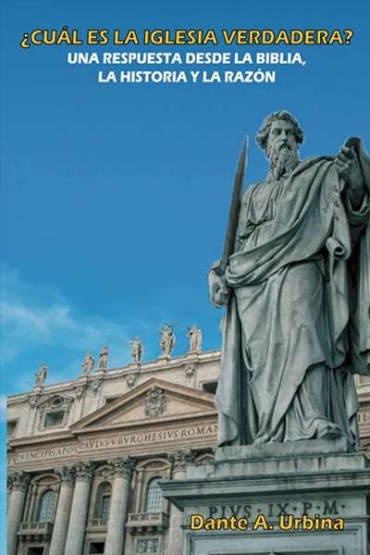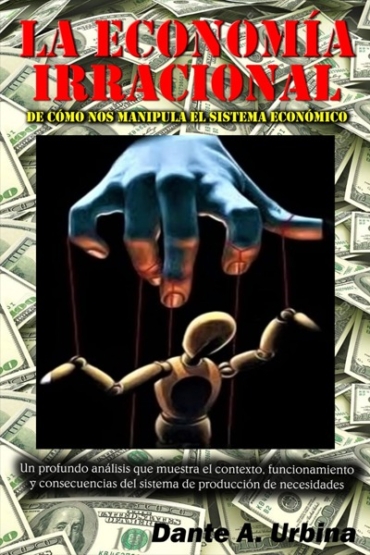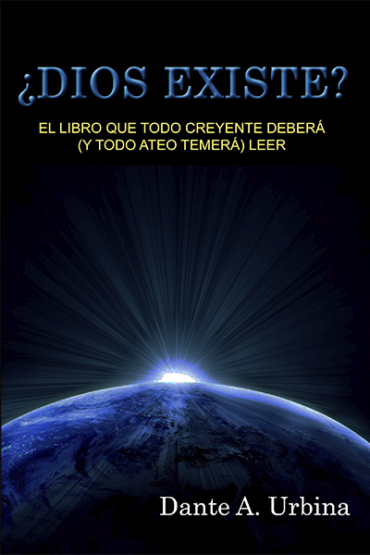
* This is the preface of the book “Economics for Heretics: Debunking the Myths of Orthodox Economics” by Dante A. Urbina. You can have access to the full book here: https://www.amazon.com/-/es/ECONOMICS-HERETICS-Debunking-Orthodox-Economics-ebook/dp/B082S65K76/ref=tmm_kin_swatch_0?_encoding=UTF8&qid=1591194329&sr=1-6
The 2008 financial crisis, which generated the so-called “Great Recession” at the international level, has given us many lessons. In specific, one of the things that the crisis has made clear is that we cannot continue with the same scheme of economic theory. It turns out that in economics there is an approach that is clearly dominant: the neoclassical theory. This approach, which supposedly “renews” classical economics, virtually monopolizes the teaching of what has been called “economic theory” in almost all schools of economics in the world. Of course, one can speak about other approaches in courses “without importance” such as “History of Economic Thought”, “Economic History” or “Economic Sociology”; but the key courses of “economic theory” (Macroeconomics and Microeconomics) have to be centered and based almost exclusively on the conventional scheme.
It is not the case that the other approaches have not developed consistent analyses and theories in field such as macroeconomics and microeconomics, but it turns out that they all tend to be minimized or ignored as “peripheral” (interestingly, the same attitude that the “developed” nations have with respect to the underdeveloped ones) or, in any case, if it is incorporated into teaching, it has to be in accordance with the corset of the dominant epistemological scheme. A clear example of this is the case of the very broad and complex Keynesian theory which is taught almost exclusively in terms of the formulation of the Neoclassical-Keynesian synthesis, that is, considering only those aspects that are (artificially) consistent with the dominant theory. Thus, most of the time, the students are acquiring their understanding of the economy on the basis of ideas such as competitive markets, the rational consumer, the supply and demand model, the production function, general equilibrium, market efficiency, free trade, rational expectations, economic growth as the primordial goal, etc.
Perhaps at this moment one could think that the issue analyzed here has only a “theoretical” interest, so that it has no relevance in the “practical” world. Nothing could be further from the truth. Economics is a field where the “good” and “bad” theories can have extremely large effects in reality, which range from the most marvelous to the most devastating. If a doctor has a bad theory and applies it, he could kill one person; if an economist has a bad theory and applies it, he could kill thousands of persons. Ironically, whereas the doctor goes to jail for negligence, the economist who knows how to apply savage policies can obtain a good position at the IMF, the World Bank, the council of economic advisers of a “developed” nation or some powerful multinational. The only important condition is that the savagery has to be applied in a very calculated and intelligent way and in consonance with the interests of those holding economic power. Examples in this regard can be clearly seen in the application of the neoliberal policies of the so-called “Washington Consensus” in the poor countries of Africa and Latin America.
But it is not absolutely necessary to be someone bad to cause these negative effects. Precisely here lies the terrible poison of a bad theory: that it can make good men do evil things or lose the opportunity to do good things. In this way, those students who receive unilateral training in economic theory go to the real world and become businessmen, government ministers, consultants, and even presidents. And they can be applying, even with good intentions, erroneous economic policies that generate negative effects upon society, culture, institutions and environment. Even so, it is difficult for the conventional economists to perceive all this in its true importance given that they have been repeatedly taught in the university that all these are important variables but, in the final analysis, are “exogenous” variables for the economists, i.e. they fall outside of their study field. So, the analysis of those problems is mainly the labor of politicians, psychologists, sociologists, and ecologists. Even this kind of economists can complain about all these problems when they read the newspaper in their homes on Sundays, but in the working days from Monday to Friday they will not consider these issues as a central problem since “they are exogenous aspects”.
But not only that, a deficient economic theory can leave the economist very badly situated when there are changes in economic reality. This is something recurrent in the history of contemporary capitalism: after epochs of optimism regarding the prosperity of the economy and the “solidity” of the economic theory, the great crises arrived and the economists were perplexed. This occurred during the Great Depression of 1929, the oil crisis of 1973 and the “Great Recession” triggered by the financial crisis of 2008. In this regard, renowned economist Paul Krugman (2008 Nobel Prize winner) wrote, in September of 2009, in the New York Times, an article entitled “How did economists get it so wrong?” proposing that a large part of the epistemological failure of the economists in facing the crisis is due to the fact that they were “mistaking beauty for truth,” that is, they were very pleased with the “mathematical consistency” of their theories and they forgot the hard and complex reality. And, in general, this is how the theoretical scheme of neoclassical economics works: by constructing mathematically decorated myths that function as bridges between the undeniable contrary evidence and the faith which orthodox economists seek to preserve. The problem is that those theoretical myths create real monsters.
So, what do we need? Heresy. We had to put into question the “orthodoxy” of economic thought, what John Kenneth Galbraith called “the conventional wisdom.” A heretic is someone who does not believe in the orthodox view. Thus, this is a heretical book, heretical regarding the economic theory that includes many lies and fallacies wrapped in apparently scientific language. This orthodox theory, the neoclassical theory, has been proclaimed the “king” of economic paradigms and walks proudly through the university halls. But someone has to tell the “king” that he is naked, somebody has to debunk the myths of orthodox economic theory.
Well, when someone wants to say that “the king is naked,” one will not say it to the consultants or courtesans of the king. It would be foolish to go there. A much better option would be to tell it to the people. The prestige and even the life of the courtesans depend on their obedience and reverence to the king: if he is naked, they will continue to say that he is wearing an elegant suit. Thus, they are the least willing to objectively analyze embarrassing questions about the king. On the other hand, the people are more willing to listen and, what is more important, this is what they need to hear. Consequently, this book is not primarily directed to the orthodox ultra-specialized scholar, but rather to all educated and socially conscious persons who might be interested on this important issue. Likewise, the book may also be of particular interest and utility to all those professionals or students of Economics and related subjects who have “doubts of faith” or who are willing to put into question the “faith” that they profess or that has been inculcated in them.
Of course, all this has implications for the writing style of this book. I seek to perform a serious critique but, at the same time, without ultra-specialized academicism. This book seeks to be fruitful. However, in academicism and ultra-specialization there is, in reality, much sterility given that, with an esoteric language that the common man will never understand, one begins to submerge oneself in a type of research in which one knows more and more about less and less, until one knows almost everything about almost nothing. By contrast, this book seeks to have a general view concerning the critique of orthodox economics and the topics of heterodox economics. Obviously, orthodox economists will take advantage of this by criticizing diverse parts of the book saying that it has insufficient academic depth (namely, “extension”) and that such-and-such a theory has not been analyzed with such-and-such sophistication that was published in such-and-such a paper. It is a price worth paying in order that the book can reach more persons who consider these issues as truly relevant. To create an academic treatise, apart from the fact that it should have more than two thousand pages to represent a minimally “satisfactory” approach according to the standards of “scientific papers,” would result in the book being read, if I am lucky, by little more than a dozen persons.
Nevertheless, the fact that this book is not “ultra-specialized” does not imply that it has insufficient academic rigor. Even though its language can be sarcastic and even amusing to a great extent, it has sought to perform an analysis with a pertinent epistemological level and abundant quotes from academic literature in books and specialized articles. In this way, whoever wants further depth in some topic can use the references and read the respective sources.
On the other hand, it is also possible that the book be criticized for being “too radical.” With regard to this, three replies might be given. In the first place, we have to remember that radical means, in rigorous terms, “what goes to the root” and precisely here we wish to reach the bottom of the errors of economic orthodoxy. In the second place, if one wants to use the word as meaning “extremist,” we must say that, in a certain way, ideas of this type also become necessary because in the current situation a change is required and the “lukewarm” ideas do not contribute substantially to that but rather, in general, are simply “absorbed” and easily neutralized by the dominant scheme. Finally, it must be said that if one is radical it is not simply one´s “fault” because orthodox economic theory also has its “share of the blame.” Indeed, given that it is the established theory, any questioning will seem a bit presumptuous and even aggressive. Likewise, a man who leans on a very old door and knocks it down could obtain the reputation of being violent. However, the bad condition of the door would also have its share of the blame.
But beyond the above, there will still be those who will be outraged that such a “magnificent” and “ancient” door has been knocked down. They will say: “Who are you to refute two hundred years of economic theory?”. Well, in reality, two hundred years is not a long time. Economics is a “science” which is still in its infancy and in an evolutionary process. In fact, in Physics there have been ideas of greater antiquity and prestige that also have been seriously called into question. The emotional attitude of wanting to conserve the “intellectual capital” in which we were educated by attacking, when faced with consistent criticisms, the person who make them (ad hominem fallacy) and not the criticisms themselves, leaves little room for a genuine (and necessary) advance in knowledge.
In any case, this is a struggle in which the “heretics” need a great heart sustained by the confidence that reason is on their side and that they will obtain their reward in “another life.” And the reward in “another life” of this book will be that there can be an economic theory more open to other paradigms, which interacts more with other social disciplines and has a more solid philosophical basis. In that time economic theory will be able to do greater and better things for the world, and there is no struggle more important than the struggle for a better world. So, let us begin our intellectual contribution to this struggle.











